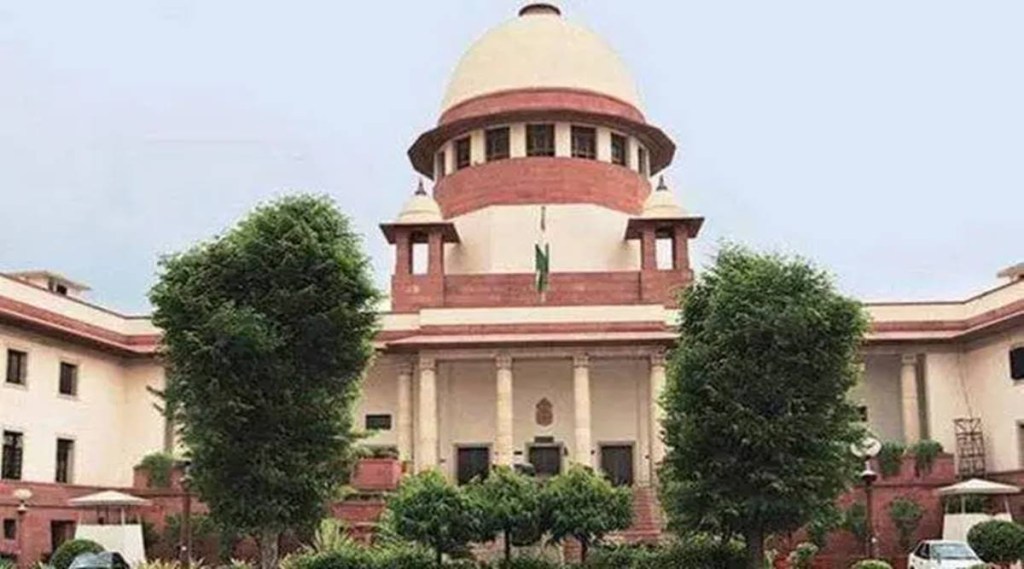The Supreme Court on Wednesday dismissed the finance ministry’s appeals alleging that Citibank and Standard Chartered Bank were guilty of violating foreign exchange regulations and the RBI guidelines while dealing as authorised dealers to handle non-resident external (NRE) accounts in India during 1992-93.
The Supreme Court on Wednesday dismissed the finance ministry’s appeals alleging that Citibank and Standard Chartered Bank were guilty of violating foreign exchange regulations and the RBI guidelines while dealing as authorised dealers to handle non-resident external (NRE) accounts in India during 1992-93.
The Supreme Court on Wednesday dismissed the finance ministry’s appeals alleging that Citibank and Standard Chartered Bank were guilty of violating foreign exchange regulations and the RBI guidelines while dealing as authorised dealers to handle non-resident external (NRE) accounts in India during 1992-93.
Also read| Infrastructure push, PLI to drive up working capital demand in India: Standard Chartered Bank’s Michael Spiegel
The banks had accepted huge foreign currency deposits in the absence of NRE account holder in 1993, which, as per the government, was in violation of the RBI guidelines and also in contravention of the provisions of the Foreign Exchange Regulations Act 1973. The ministry had issued show cause notices to the banks after eight years for accepting foreign currency deposits by individuals other than NRI account holders in respect of the NRE accounts, thus violating various provisions of the FERA.
Upholding the Delhi High Court’s judgments that ruled in favour of the banks, a Bench comprising justices BR Gavai and PS Narsimhan said the show causes notices issued by the authorities in 2002, i.e., after a period of almost one decade from the date of the alleged transactions of 19921993, “were not tenable in law.”
Also read| Standard Chartered Bank settles case with Sebi in CG Power case; pays Rs 4.97-cr
The HC had held that the bank’s liability to insist upon the person to make the deposits was not clear and the same was clarified to the bank only after impugned transaction in 1993. Besides, the showcause notice was issued to bank after almost a decade and the banks were not obliged to maintain the record beyond eight years which prejudiced the bank.
“…the alleged transactions had taken place during the financial years 1992 and 1993. Show cause notices for the said transactions were issued in 2002 and that too just before the sunset period of FERA was to expire, i.e., on 1st June 2002. We are, therefore of the considered view that show cause notices and the proceedings continued thereunder are liable to be set aside on this short ground,” the SC said.
Justice Gavai, writing for the Bench, said that while RBI by an order in writing is empowered to direct any bank to preserve any of the books, accounts or other documents, etc. for a period longer than what is specified under its Rules, no such order was placed on record for preservation of records concerning the transactions in question.
The banks are required to preserve the record for five years and eight years, respectively, thus permitting the show cause notices and the proceedings to continue thereunder of the transactions which had taken place much prior to eight years would be “unfair and unreasonable,” the judgment stated.
SC lawyer Sandeep Narain, who represented Citibank, said that the SC judgment would also mean that the RBI circular of July 31, 1995 prohibiting such transactions would be prospective in its application and could not have been applied for any transactions prior to the date of the circular. “The SC judgment would thus have an impact on several pending prosecutions on similar facts as well as on several petitions pending before various HCs which were awaiting the outcome in the present case,” he added.
During RBI’s scrutiny of NRE accounts in July 1995, serious irregularities were noticed in the operations on these accounts, particularly in regard to affording credits of proceeds of foreign currency/bank notes.
RBI had, in a clarification, advised authorised dealers that in no circumstances should proceeds of foreign currency/bank notes and travellers cheques tendered by power of attorney or any person other than the account holder be credited to the NRE account.
Citibank, which had accepted cash in foreign currency, equivalent to Rs 23.17 lakh during October 1992 to January 1993 to the credit of an NRE account, had taken the stand that the restriction to the effect that only an NRI Account Holder shall deposit foreign currency in his NRE account was added only with effect from July 31, 1995 vide a RBI Circular and the restriction can not have applied retrospectively.
The American Express Bank, which merged with SCB in March 2008, was also charged for contravention of Fera for having accepted cash deposits equivalent to more than Rs 84 lakh into the account of NRIs in 1993 by persons other than the account holder without conforming to the RBI norms.

